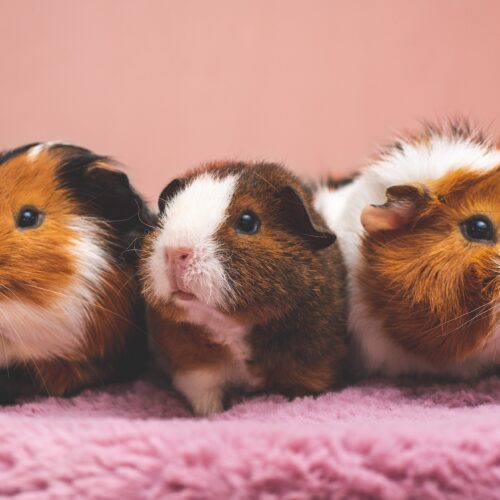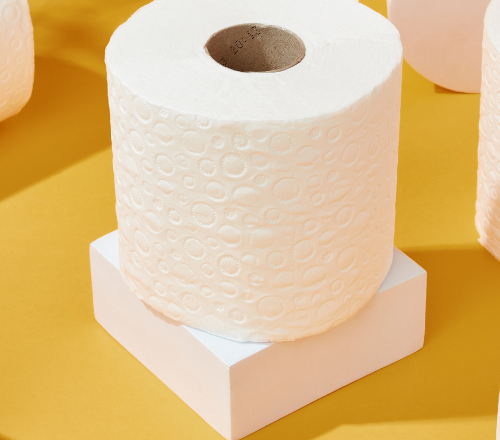A staple in most homes, kitchen roll has a wide range of practical uses.
It’s just as helpful in food preparation as it is for a hygienic and efficient cleaning aid when it comes to dealing with spills and leakages in the kitchen. Therefore it comes as no surprise that, according to Statista, over 280 thousand tonnes of kitchen roll are sold in the UK each year. However, this raises some interesting questions – what is the correct way to dispose of kitchen roll and is it sustainable?
In this handy guide, Oceans will look at whether or not kitchen roll is recyclable. We’ll also explore whether this household essential is compostable or even biodegradable, helping you to opt for the most appropriate, environmentally friendly way to dispose of it.
Can kitchen roll be recycled?
Although often wrongly placed in recycling bins, the sad truth is that kitchen roll isn’t suitable for recycling. The reason for this is twofold – it is partly down to what kitchen roll is made from and partly due to what we use these paper towels for.
While some kitchen roll brands use some recycled paper in their products, this can actually prevent the kitchen roll that you buy from being recycled. This is because, as paper is recycled, the fibres that hold it together become shorter and shorter, impacting the quality of the paper. By the time paper has been recycled into something new, its fibres are so short that it cannot be recycled again.
The other reason kitchen roll cannot be recycled comes down to what we use it for. While some recycling centres may accept unused kitchen roll, once it is used it cannot be recycled. We use kitchen paper for a wide range of tasks, from wiping up oil and grease spills in the kitchen to cleaning surfaces and counters with chemical-based cleaning products. As soon as a sheet of kitchen roll becomes contaminated, it can no longer be recycled.
This is because, if contaminated waste is allowed to enter the recycling process, the recycled material would be at worst damaged or at best potentially stained by the oils, food waste or cleaning products.
For this reason, great quantities of material could end up having to be thrown away if contamination has been found. This means, by throwing away a single piece of dirty kitchen roll with your regular recycling, you could be responsible for a much larger load of recyclable material being sent to landfill instead.
However, it’s worth noting that while the paper itself cannot be recycled, the carbon tube in the centre of the roll can typically be recycled.
Is kitchen roll biodegradable?
Now you know that kitchen roll cannot be recycled, the next thing to know is if it is biodegradable. Well, the good news is that, yes – in most circumstances, kitchen roll is biodegradable.
This is because, as we touched on above, kitchen roll is chiefly made from paper, meaning the fibres that hold each sheet together are short and very thin. This means that kitchen roll decomposes quickly, especially when wet, with worms and bacteria able to get to work almost immediately after disposal.
Is kitchen roll compostable?
The simple answer is, yes – kitchen roll is compostable. However, you shouldn’t put kitchen roll in your compost bin if they have been used in a number of ways.
As a rule, for example, sheets of kitchen roll that have been used with chemical-based cleaning products, or have been used to wipe up oil or grease, should not be composted. This is because oil and grease act to remove the air present in your compost bin, leading to an increase in harmful anaerobic bacteria that will ruin your compost. Additionally, this type of bacteria will also produce an unpleasant smell.
Similarly, the presence of chemical cleaning products in your compost bin can affect the natural macro and microorganism processes involved in creating useful compost. In extreme cases, this contamination can even lead to organic damage to plants and wildlife when you come to use the compost in the future.
Finally, if you are feeling unwell or carrying a contagious illness, it’s also a good idea to stop composting your used kitchen roll until you have recovered. Once again, this is simply because if the harmful bacteria or virus making you unwell is introduced in large volume to your compost heap, the composting process could be impacted, leading to ruined compost.
However, kitchen roll can typically be composted in all other circumstances. This means that sheets used to wipe up food-based spillages, clean dishes or dry hands can be safely tossed into the compost bin. On average, individual sheets of kitchen roll will take between 14 and 45 days to biodegrade.
So, there you have it – a quick explanation of the best ways to dispose of used kitchen roll. To minimise your impact on the environment further, you can opt for kitchen paper that is free from single-use plastic wrappers.
At Oceans our kitchen rolls are packaged in paper to make sure we’re not contributing to marine pollution. On top of this, all of our products are made right here in the UK to cut down on carbon emissions produced through international shipping. While we know plastic-free kitchen roll isn’t the full solution to the ongoing sustainability crisis, it’s a good place to start!





